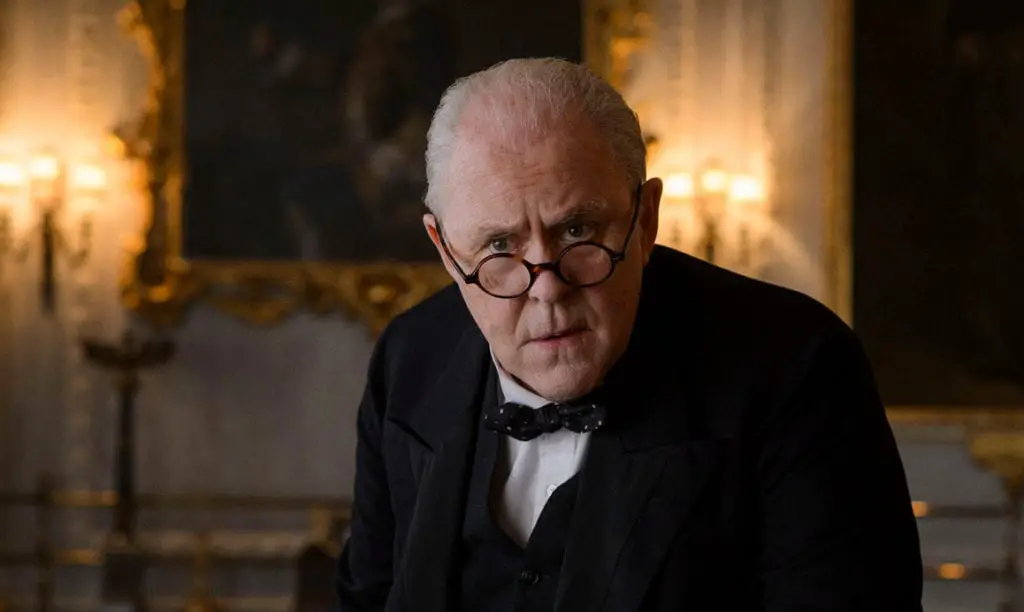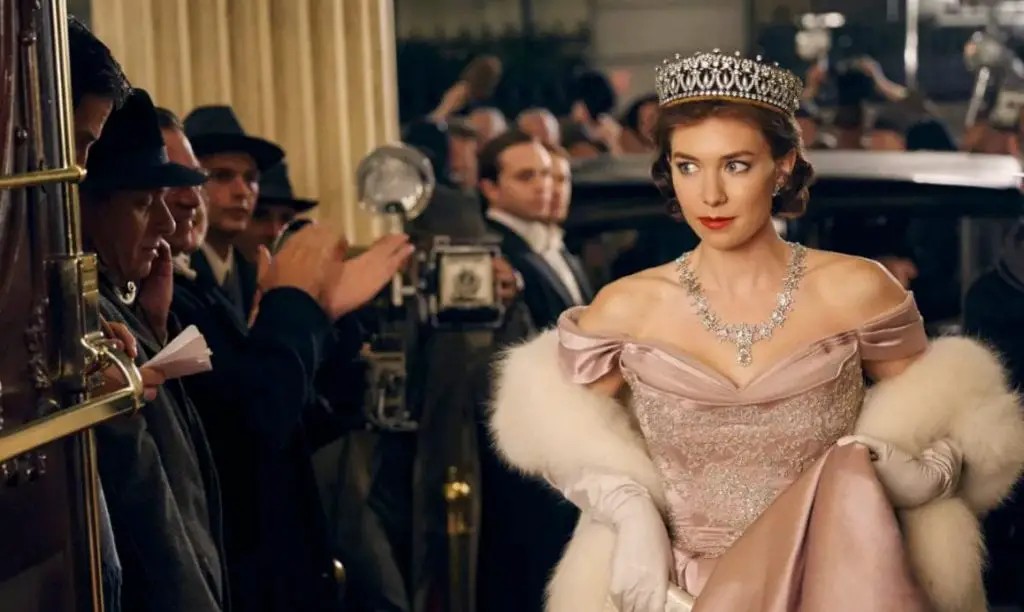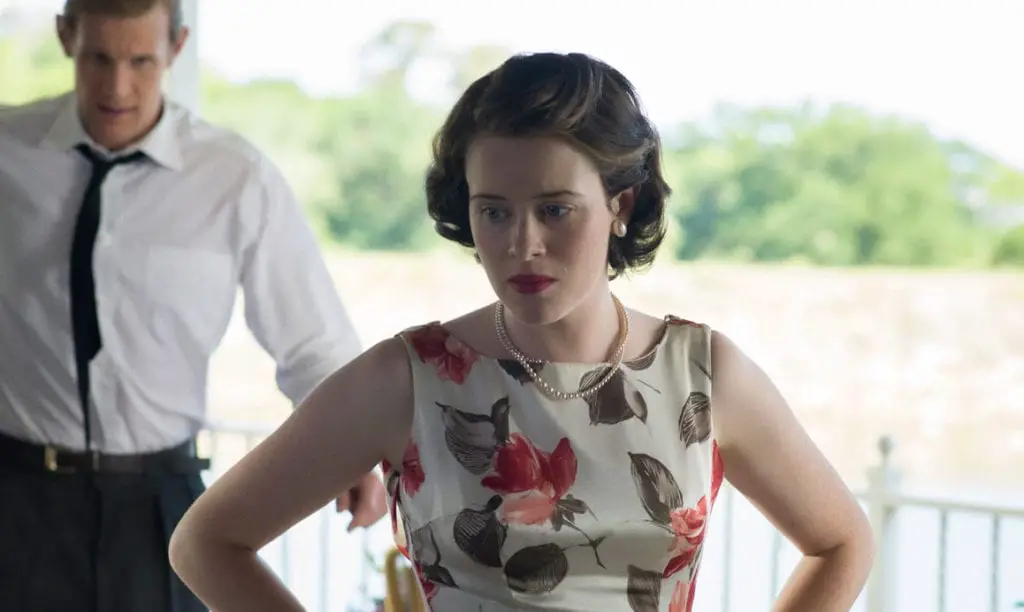The most frustrating aspect of The Crown is the way that every major character surrounding Elizabeth calls into question her methods for running the country. But while to some it may seem that Elizabeth is selfish, or overwhelmed, or ill-informed about the decisions she has to make, to me it appears that she is doing everything she can to perform her duties to the best of her ability. Case in point: the opening of Episode 7. Elizabeth realizes that she has significant gaps in her education; the tutoring she received as a child focused primarily on what she would need to know as the heir to the throne, and so simple general education such as math and history that other children her age would have learned was never made available to her. She considers this a significant failing and sets her sights on closing the gaps in her knowledge, believing that it is her responsibility as a leader to a broadly educated and intelligent person.
The 7th and 8th of episodes (if you’ve missed previous recaps head here) of The Crown evoke heavy themes of fear of failure, from both Elizabeth and Churchill. Where Churchill’s fears stems more form his own crippling pride, Elizabeth is deeply concerned with not letting anyone down — particularly the Crown itself. The willpower that she has to educate herself and become a better monarch in all areas of duty is made most clear when she meets again with Churchill.

Churchill’s health is rapidly declining, to the point where he is no longer fit for office. He initially attempts to hide his illness from the Queen, so desperate is he to hold onto the pride of his position and title. This plan evidently does not work for very long, and he is forced to admit his ailing health to Her Majesty after Elizabeth confronts him. The confidence and knowledge she has learned so far in her role as monarch becomes immediately clear when she delivers this line to Churchill:
“I would ask you to consider your response in light of the respect that my rank and my office deserve not that which my age and gender might suggest.”
You tell ‘im. Elizabeth continues to achieve the highest heights that she is capable of as Queen, refusing to back down on any of the many engagements on her unfatthomably long list of places to be, as she and Philip tour the world to make royal appearances. Philip can hardly stand this tour and takes every opportunity open to him to complain about the heat, the length of time, and any other minor dangers that may confront them. Elizabeth resists him at every turn, and at this point one has to wonder whether her response to him is really is entirely her feelings of responsibility to the Crown as she claims, or if she does in fact take a small amount of satisfaction in doing what she wants intead of what Philip wants. Both of them, evidently, push each other to some degree.

Back in England, Margaret is given the responsibility of making local appearances and speeches on the Queen’s behalf, but despite every advice not to she insists on making these speeches flair with her own personal anecdotes and sense of humour. I get it; she is the younger of two sisters and as an oldest sibling I understand that the job of being “the funny one” always falls to the younger, better looking sibling who has learned from the older one’s past mistakes and gets to avoid the worst burdens of responsiblity. But Margaret fails to understand that she is making appearances not behalf of her sister Elizabeth but on behalf of The Crown, and the burden of responsibility is hence much higher and heavier. Margaret does an undeniably good job of winning over crowds, but sadly these occasions are neither the time nor place for jokes about terrible food and beautiful people. Margaret’s nonchalant attitude towards royal responsibility sadly foreshadows the point of contention that is only set to grow between herself and Elizabeth from this point forward. With her darling Townsend out of her reach for now, it’s no wonder Margaret attempts a little bit of acting out; but as Townsend points out to her over one of their phone calls, her seeking fun and attention could very well jeopardize their future together. But more on these two tragic lovebirds in our final review. For now, it’s back to the other ‘romance’ of the story — Elizabeth and Philip.

While on tour Elizabeth and Philip’s relationship hurtles through a kind of briefness snapping point, as each becomes fed up with the other over various stressful elements of their journey. The privacy of their frustrations had been taken for granted up until the moment when Philip makes an all-too-bold remark about Elizabeth’s late father, forcing her to chase him out of their holiday house while throwing things at his head and screaming. The fight comes to an abrupt halt when they discover they have run straight into the watchful eyes of a news camera and crew on the edge of their property. The royal couple retreat, horrified at their own marring of the image of the Crown. Moments later, now composed, Elizabeth turns down Philip’s decision to confront the crew and goes to speak to them herself. Miraculously the cameraman immediately removes his roll of film and exposes it to the sun without argument. “Exposure” will surely be a word ringing in the young monarch’s mind for quite some time.
Worth noting as a final thought is the magnificent slow-motion montage during one of Elizabeth and Philip’s tour stops in Australia. The intensely high frame rate captures in great detail the subtle glances the two make at each other as each considers the work own opinion of “duty”. To Elizabeth, duty is the appearing, the hand waving and the faithful acknowledgement of her people and her responsibility to them; for Philip, it’s the showing up, begrudgingly, because he must for the sake of his wife. It’s his “I must” versus her “I will”. I encourage you to keep this in mind in my upcoming finale recap, as Elizabeth’s understanding of duty is still yet to enter its final stage of metamorphosis. Tune in next time.

